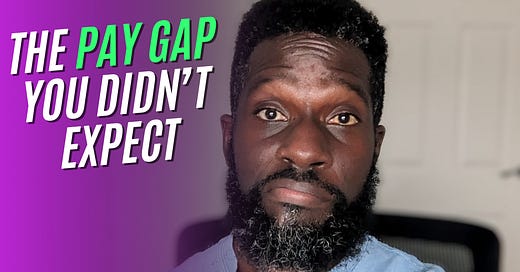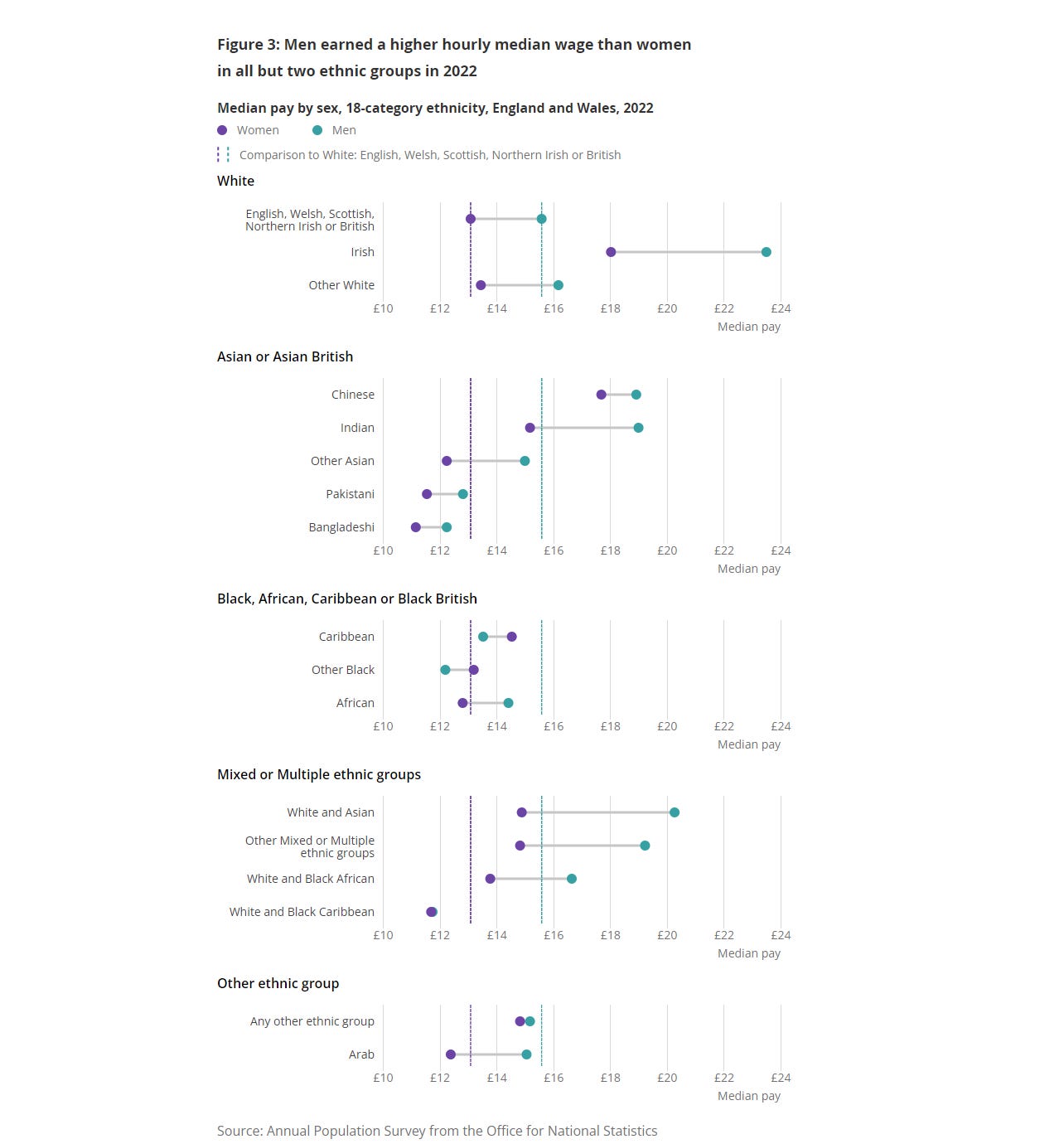The Black British Gender Pay Gap No One Is Talking About (Notes and References)
Greetings good people! Here are the notes from my video entitled “The Black British Gender Pay Gap No One Is Talking About”
In the UK and other so-called developed countries, generally speaking, men tend to earn more than women
Gender Pay Gap: House of Commons Library. 8th Jan 2024: https://researchbriefings.files.parliament.uk/documents/SN07068/SN07068.pdf
This overall picture hides some considerable variations when ethnicity is taken into consideration
Looking at these data from The Office for National covering the 2021-2022 tax year, in almost every ethnic group, the median hourly wage is higher for men than women
Interestingly, the gaps are particularly large in some groups, and smaller in others
The only two ethnic groups where women had a higher hourly median salary than men were Black Caribbean and Black Other
Ethnicity pay gaps, UK: 2012 to 2022. ONS 29th November 2023: https://www.ons.gov.uk/employmentandlabourmarket/peopleinwork/earningsandworkinghours/articles/ethnicitypaygapsingreatbritain/2012to2022#pay-gaps-by-sex
And when we look at other data sources, we see a really interesting historical trend in regard to the earnings gap between Black Caribbean women and men:
In 2017, the Fawcett Society, an organisation that calls itself “the UK's leading charity campaigning for gender equality and women's rights” published a briefing entitled “Gender Pay Gap by Ethnicity in Britain.” https://www.fawcettsociety.org.uk/Handlers/Download.ashx?IDMF=f31d6adc-9e0e-4bfe-a3df-3e85605ee4a9
They give some fascinating historic data. For example, we see that for Black African women, the pay gap between them and Black African men narrowed from 16.6% in the 1990s to 4.2% in the 2000s, but then increased to 5.4% in the 2010s
In comparison, with Black Caribbean women we see that in the 1990s and 2000s, the median hourly salary for full time Black Caribbean females and males was basically the same
But by the 2010s, the median hourly salary for full time Black Caribbean women had surpassed their male counterparts with a 9% gap.
Why the “reverse gender pay gap” among Black Caribbean women and men?
Firstly, a higher proportion of Black Caribbean women work in higher paying roles than do Black Caribbean men
These figures from the same Fawcett Society paper indicate that 31% of Black Caribbean women were in managerial roles, versus about 22% of Black Caribbean men
And whereas 19% of Black Caribbean women were in intermediate roles, only 8% of Black Caribbean men were
And remember, these figures are from 2011 data, so it’s likely that these disparities have continued and probably grown
Educational performance
Black Caribbean women for many years have been achieving higher grades are school than the boys
ONS GCSE results (Attainment 8) Published 17 October 2023 https://www.ethnicity-facts-figures.service.gov.uk/education-skills-and-training/11-to-16-years-old/gcse-results-attainment-8-for-children-aged-14-to-16-key-stage-4/latest/
Females tend to score higher than males across all ethnic groups. But the gap between Black Caribbean girls and boys is much higher than all other groups except the Black Other group
ONS GCSE results (Attainment 8) Published 17 October 2023 https://www.ethnicity-facts-figures.service.gov.uk/education-skills-and-training/11-to-16-years-old/gcse-results-attainment-8-for-children-aged-14-to-16-key-stage-4/latest/
Another educational factor behind the reverse gender pay gap is that more Black Caribbean females go to university than Black Caribbean males
Whereas 56% of Black Caribbean females that were educated in state schools were had started university by 19 years old, only 34% of their male counterparts did.
Again, this is the same for other ethnic groups, but the biggest gender gap among the different ethnicities
Equality of access and outcomes in higher education in England - House of Commons Library 25th July 2024: https://researchbriefings.files.parliament.uk/documents/CBP-9195/CBP-9195.pdf
On top of this, of those who do go to university, a higher proportion of Black Caribbean women went to a so-called “higher tariff” (i.e. more prestigious) university than their male counterparts
Whereas 7.3% of Caribbean females attended a higher tariff uni, only 3.5% of the males did
Again, this is the biggest gender gap among all ethnic groups with only Black Other remotely close, albeit the overall proportion of Black Other students attending higher tariff unis is higher than for Black Caribbean
'Free School Meals, Gender and Ethnic Group' from 'Widening participation in higher education' https://explore-education-statistics.service.gov.uk/data-tables/permalink/38b34db9-295e-410f-94a4-08db08498a11
Concluding Thoughts
We’ve established a clear picture as to why Black Caribbean Women earn more than Black Caribbean men
Firstly, more of the women are in roles that pay highly compared to the men
This difference is probably a lot to do with the fact that Black Caribbean females achieve much better educational outcomes than the men
Key question, why do black children do poorly ay school. Because Black Caribbean girls do worse than women of almost all other ethnic groups, on average











